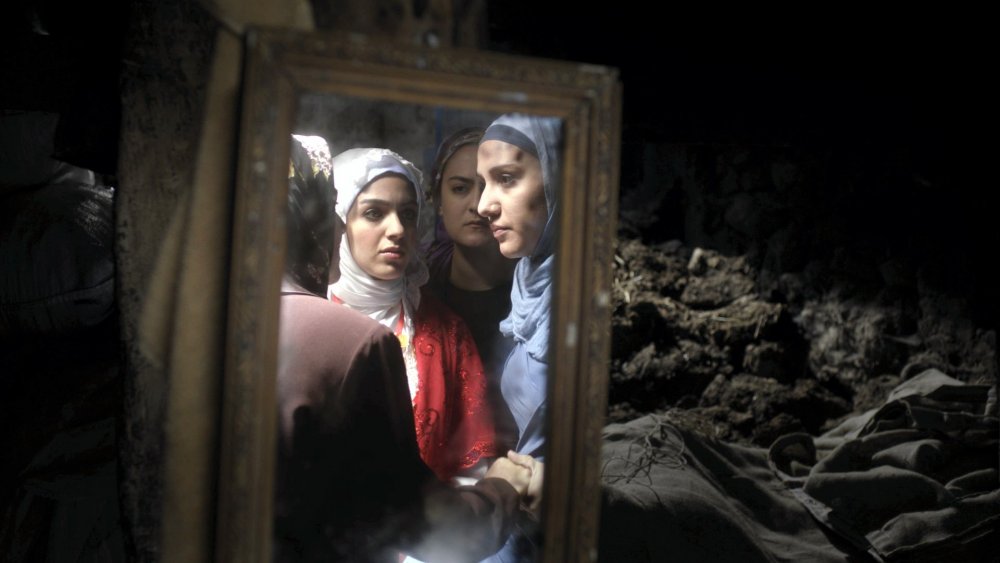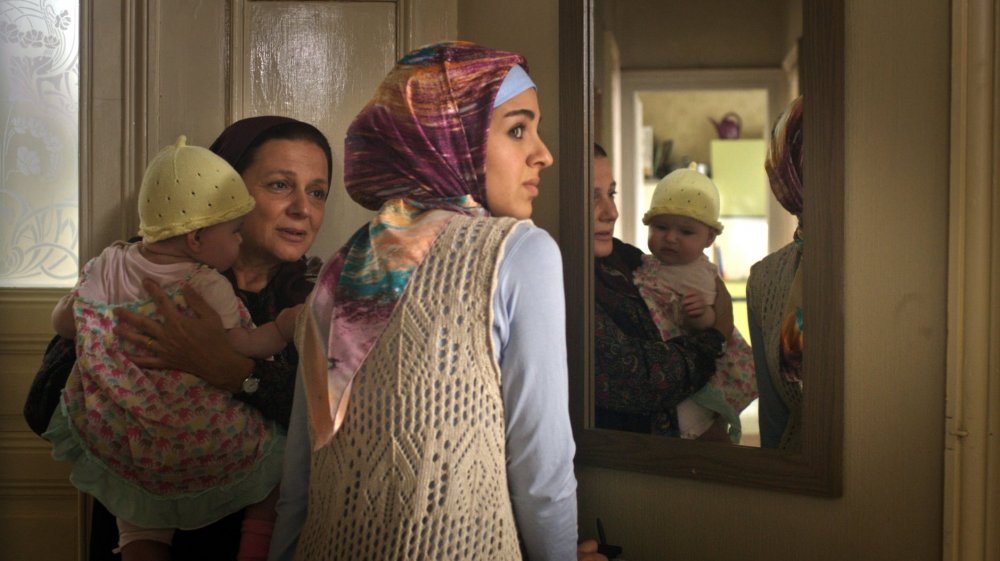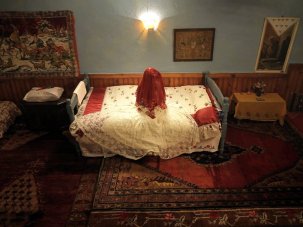from our September 2013 issue

For the second time this year we’re plunged into the boisterous tumult of an Anatolian wedding: the ululating women, the raucous shawm-and-drum music, the young men’s stamping line-dance. And, as in Reis Celik’s Night of Silence, what’s going on behind the scenes is rather less celebratory. In that film, it was the arranged marriage between a 13-year-old girl and a 60-year-old ex-jailbird.
| Austria 2012 Certificate 12A 93 minutes approx. Crew Cast In Colour Distributor Peccadillo Pictures Ltd |
In Austrian-Kurdish director Umut Dag’s debut feature Kuma we have another age mismatch, though it’s not quite so extreme: the innocent 19-year-old Ayse (Begüm Akkaya) and the elderly paterfamilias Mustafa (Vedat Erincin). But the wedding we’re shown is a sham. Ayse is apparently being married to Hasan (Murathan Muslu), Mustafa’s handsome young son. Only when the family take her from Anatolia back to Vienna do we learn that she’s intended as a kuma (second wife) for Mustafa, whose first wife Fatma (Nihal Koldas) is seriously ill.
Though Ayse’s is the title role (played by Akkaya with sweetly appealing delicacy), the household’s dominant figure is Fatma – all the more so after a surprise twist midway through the film. A warm, nurturing figure but rigidly traditional in her outlook, it’s Fatma who arranges the fake marriage to provide someone to look after her family if she should die.
“Turkish society,” as Dag notes, “places more emphasis than others on outward appearances,” especially in a foreign country. We see few native Austrians but we’re always aware of the non-Turkish, non-Muslim society that surrounds this immigrant enclave – not least the way some family members switch fluently between Turkish and German.
The film’s Asian-set prologue ends on a high-angle shot of the Anatolian mountains, brown and bare, stretching into the far distance – from whose austere expanses we cut to the confines of the family’s Vienna apartment, its corridored claustrophobia emphasised by the wide-screen format. Petra Ladinigg’s sharp script creates a stifling sense of a judgemental, rumour-rife community, heavy with repression and unspoken secrets; even in the local halal food store, the only other venue we visit at any length, it seems that malicious gossip rather than commerce is the prime activity.

The culture-clash contradictions show most clearly in the two older sisters, Kezban and Nurcan, who displace their resentment of their controlling mother into vindictive treatment of Ayse. Both speak fluent German, which they flaunt, using it as a secret language in her presence; but when she’s caught having sex with a work colleague they readily invoke traditional values and demand she be sent back to Anatolia for having ‘brought shame’ on the family.
Deploying a cast of mainly non-professionals, Dag draws fluent, vividly convincing performances from his whole ensemble – and especially from theatre veteran Koldas, as a woman in whom regard for appearance always trumps her kinder instincts, and from newcomer Akkaya in only her second feature. The expressive play of emotions across Ayse’s face as her initial docility shades into something more wary and conflicted lies at the heart of this complex film.





